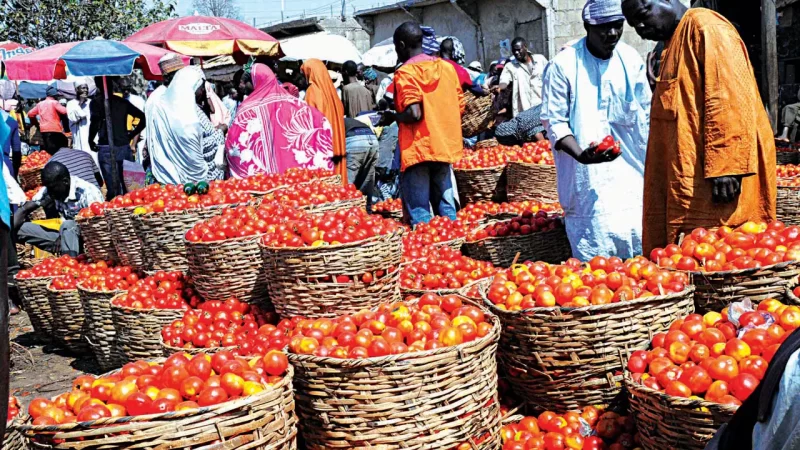Business
Hunger Protest And The Need For Food Security, by Ibrahim Mustapha Pambegua
Besides malnutrition, hunger also causes poor health. Chronic hunger can lead to a range of health problems, including anaemia, vitamin deficiencies, and increased susceptibility to diseases.

The hunger protest which rocked some states in the country during democracy day celebration or June 12 has indicated that Nigerians are battling with hunger, occasioned by soaring cost of living. The cost of food items across the country have hit the roof making it difficult for many households to purchase them. With inflation which reaches 40% and erodes purchasing power of many Nigerians,there is an urgent need for government to address the hunger challenges in other to avert unpleasant consequences. As the saying goes “A hungry man is an angry man” Nigerians are not happy with or being frustrated by the skyrocketing price of good and services amidst growing poverty in the country. Many economic experts have blamed the removal of petroleum subsidy and the unification of dollars by President Ahmed Bola Tinubu as the trigger of cost of living crises in the country. To add salt to the injury, insecurity has bedevilled farming communities. The activities of rapacious bandits coupled with herders/farmers conflicts have driven many farmers from their farms and caused food shortage in the country. Indeed, this has caused severe hunger, affecting individuals, communities, and the country as a whole. The implications of hunger are many and can be seen thus: Malnutrition. Hunger can lead to malnutrition, which can cause stunted growth, weakened immune systems, and poor health outcomes. Recently,there is a disturbing report from Bauchi State on many communities hit by malnutrition with the children worst hit.
Besides malnutrition, hunger also causes poor health. Chronic hunger can lead to a range of health problems, including anaemia, vitamin deficiencies, and increased susceptibility to diseases.
It reduces productivity. Hunger can impair cognitive function, reduce energy levels, and decrease productivity, making it harder for people to work and support themselves.It Increases mortality rate. Severe hunger can lead to starvation, which can be fatal, especially among vulnerable populations like children, pregnant women, and the elderly.
The Social unrest such as protests witnessed recently which demand expedient action from government is another consequences of hunger.
Hunger can exacerbate poverty, as people are forced to spend limited resources on food rather than other essential needs like education, healthcare, and housing. In extreme cases, widespread hunger can lead to political instability and even regime change, as governments are held accountable for their failure to address food security.
Looking at the consequences of hunger in the country, it has become imperative for government at all levels-Federal,state and local governments-to embark upon food driven campaign towards food security. There is no gain saying the facts,tackling hunger in Nigeria requires a multifaceted approach that involves various stakeholders, including the government, farmers, NGOs, and international organizations. Adopting the following strategies can aid Nigeria to defeat hunger and become self-sufficient in food production.
- Agricultural development: Invest in agriculture, provide support to farmers, and improve irrigation systems to increase food production.
- Food distribution: Improve transportation and storage infrastructure to ensure food reaches remote areas.
- Poverty reduction: Implement social protection programs to address poverty, a root cause of hunger.
- Food assistance: Provide emergency food aid to vulnerable populations.
- Sustainable development: Address environmental degradation, climate change, and conflict, which contribute to food insecurity.
- Food fortification: Encourage food fortification to address micronutrient deficiencies.
- Support small-scale farmers: Provide training, credit, and inputs to small-scale farmers, especially women.
- Improve food storage: Invest in modern storage facilities to reduce post-harvest losses.
- Promote nutrition education: Educate citizens on proper nutrition and healthy eating habits.
- Collaborate with international organizations: Partner with organizations like the UN’s World Food Programme to access expertise and resources.
By implementing these strategies, the Nigerian government can make significant progress in tackling hunger and ensuring food security for its citizens.
Ibrahim Mustapha Pambegua, Kaduna State. 08169056963.
























